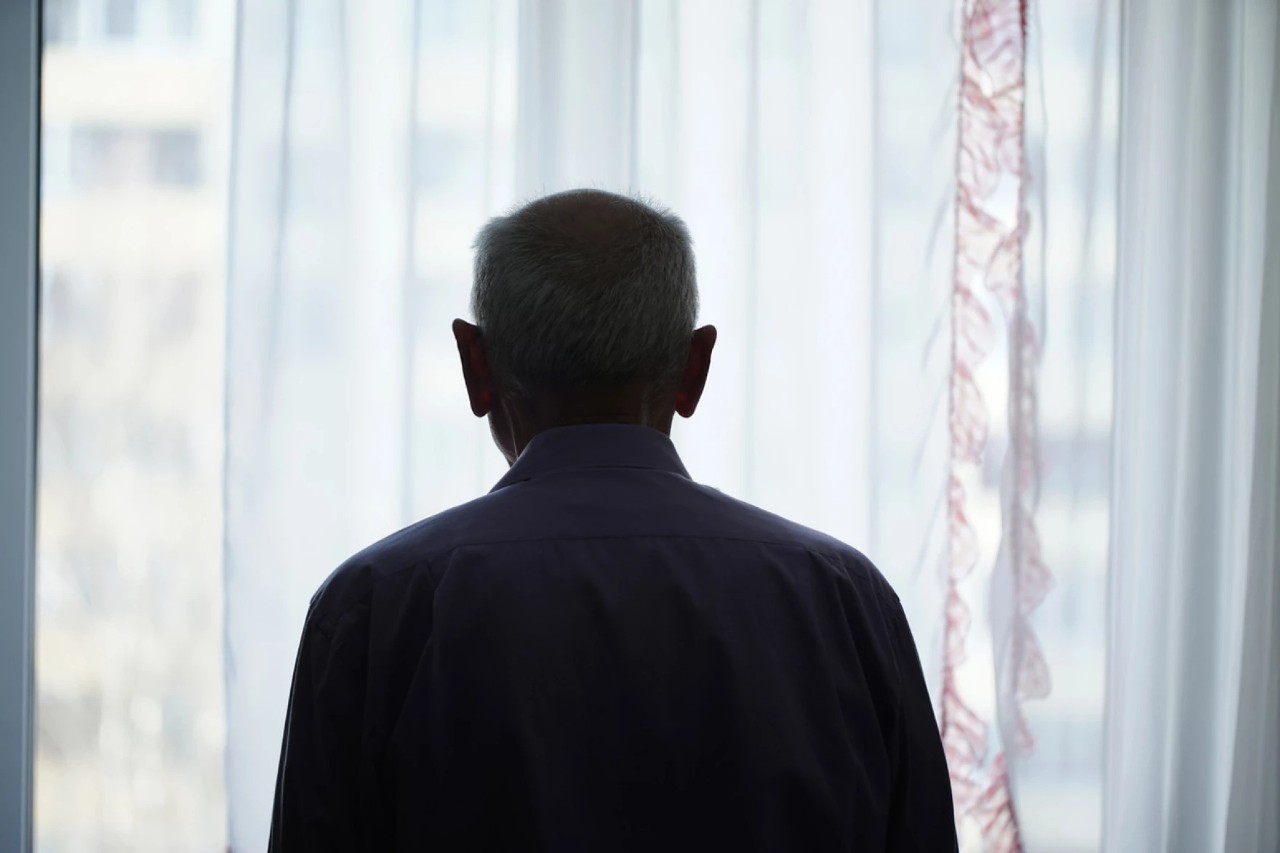
WVXU: Loneliness can have long term effects. A UC researcher has some advice to combat it
Being social during the holidays is one recommendation
The holidays can be a joyous and festive time, but for some, they trigger stress and loneliness, especially for those who have experienced loss in the last year. In a story produced by WVXU on the topic, James Herman, PhD, the chair of the Department of Pharmacology and Systems Physiology at the UC College of Medicine.
Herman told the radio station loneliness is a state of the brain that can have an emotional effect down the road and added that being around other people helps the brain combat stress.
"Actually, the whole notion of the social environment can reduce the biological effects of stress on the body," he says. "You actually have the ability to better fight off the stressful times that are associated with the holidays."

James Herman, PhD, of the Department of Pharmacology and Systems Physiology at the UC College of Medicine/Photo/Colleen Kelley/UC Marketing + Brand
Herman says it's more than just staying too busy to be lonely. He says look for quality time, not quantity time.
It may sound simple, but he says to keep mentally healthy, make time for yourself.
"If you exercise, don't take time off from your exercise regimen, if that's what you enjoy. If you enjoy reading, if you enjoy watching television, you should make sure you're able to keep up with the things that make you feel good. Because that really is going be what's going to help stave off the potential negative effects of the stressfulness of the time."
He says getting together with friends for a drink may be a good way to combat loneliness, but there's a caveat with alcohol or other substances.
"They do exactly the same thing. A lot of the things we've been talking about do. They actually go into the brain and they take over the circuits that are responsible for making us happy or reducing our stress or whatever," he says. "But of course, a lot of the substances are abuse-able and addictive."
Lead photo/Yaraslau Saulevich/IStockphoto
Next Lives Here
The University of Cincinnati is classified as a Research 1 institution by the Carnegie Commission and is ranked in the National Science Foundation's Top-35 public research universities. UC's graduate students and faculty investigate problems and innovate solutions with real-world impact. Next Lives Here.
Related Stories
Designing the next generation of drug delivery
July 18, 2024
UC Assistant Professor Briana Simms talks to PhRMA about using nanoparticles to deliver medicine.
Mural by UC grad honors U.S. military history
July 17, 2024
Local 12 highlighted a new mural by University of Cincinnati graduate and artist Brandon Hawkins that pays tribute to U.S. military history.
Social media fuels extreme political rhetoric
July 17, 2024
UC College of Arts and Sciences Professor Jeffrey Blevins tells Local 12 that online algorithms fuel political polarization on social media.
Camp aims to empower children, teens who stutter
July 17, 2024
A one-week, evidence-based program for children and teens who stutter at the University of Cincinnati will teach kids to communicate effectively, advocate for themselves and develop confidence about their communication abilities. Camp Dream. Speak. Live., which is coming to Cincinnati for the first time July 22-26, began in 2014 at the University of Texas at Austin. The Arthur M. Blank Center for Stuttering Education and Research at UT expects to serve more than 2,000 children at camps across the United States, Africa, Asia and Europe this year.
From intern to full-time: Recent Lighting Design grad joins Bandit Lites
July 16, 2024
Lighting & Sound America spotlights recent graduate Riley Rowan's new position at Bandit Lites, a full-service design, management and producer of live events and entertainment.
CCM alum Donald Lawrence to be inducted into Cincinnati Black Music Walk of Fame
July 16, 2024
UC College-Conservatory of Music alumnus Donald Lawrence is part of the 2024 class of Cincinnati Black Music Walk of Fame inductees. Located at the Banks in downtown Cincinnati, the induction ceremony on July 27 will feature a parade of stars and a free concert by the Zapp Band.
U.S. stroke survival is improving, but race still plays role
July 16, 2024
U.S. News & World Report, HealthDay and Real Health covered new research from the University of Cincinnati that found overall rates of long-term survival following stroke are improving, but Black individuals experience worse long-term outcomes compared to white individuals.
Presidential challenge to UC: Join Ride Cincinnati to fight cancer
July 16, 2024
UC President Neville Pinto has again challenged every UC college and unit to send at least one rider to the September 14 Ride Cincinnati event to help fundraise for cancer research and cancer care. UC students ride free. Signup by July 31 for free UC-branded cycling jersey.
Pediatric ICU rates linked to housing quality, income, education
July 16, 2024
Healio highlighted research led by the University of Cincinnati and Cincinnati Children's Hospital's Carlie Myers that found a link between pediatric ICU admission rates and housing quality, household income and education.
UC study: Long-term stroke survival improving, but racial disparities remain
July 15, 2024
New research from the University of Cincinnati published in the journal Neurology found long-term survival rates following acute ischemic strokes are improving, but Black individuals experience worse long-term outcomes compared to white individuals.
